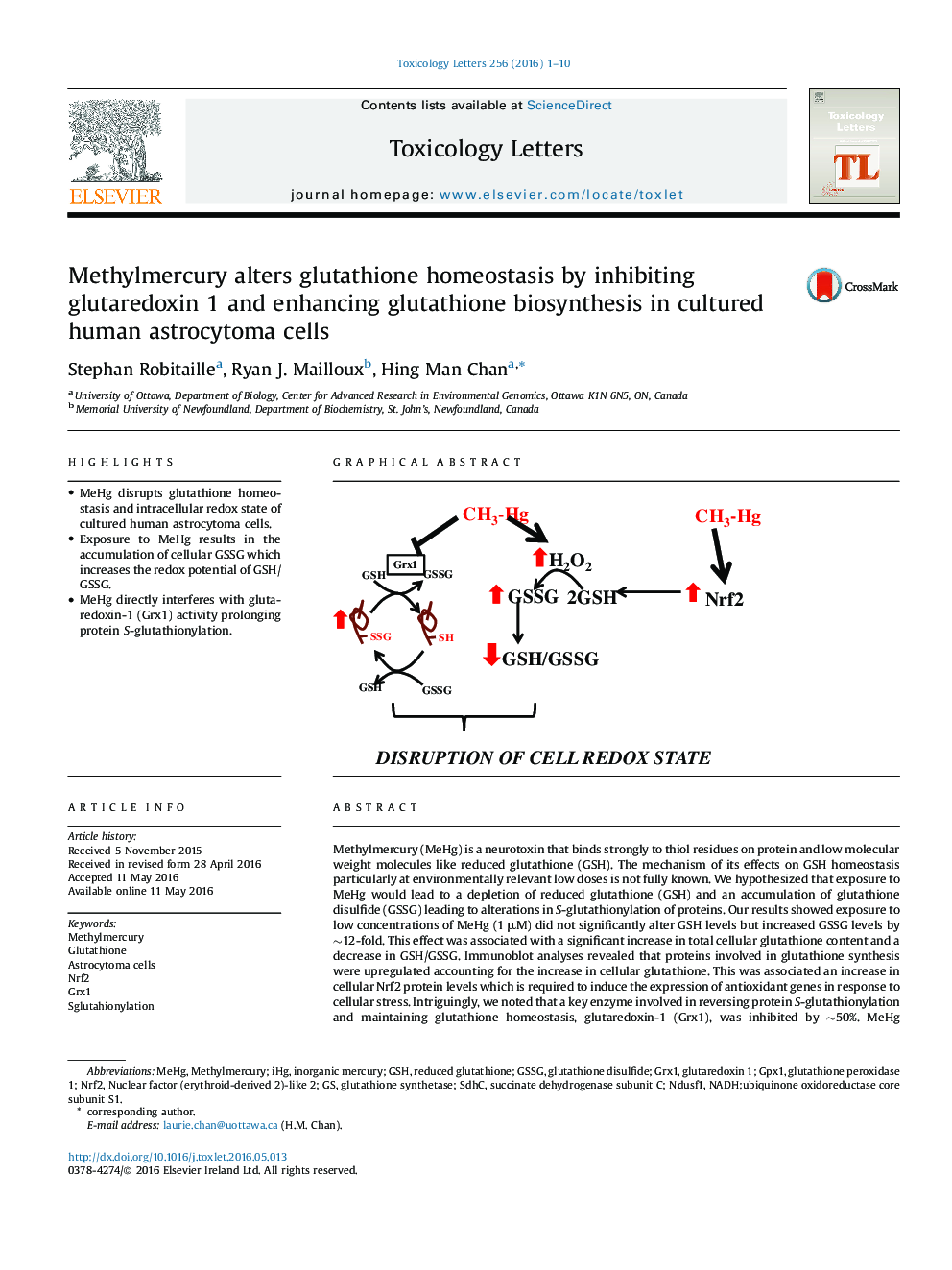| کد مقاله | کد نشریه | سال انتشار | مقاله انگلیسی | نسخه تمام متن |
|---|---|---|---|---|
| 2598355 | 1562617 | 2016 | 10 صفحه PDF | دانلود رایگان |
• MeHg disrupts glutathione homeostasis and intracellular redox state of cultured human astrocytoma cells.
• Exposure to MeHg results in the accumulation of cellular GSSG which increases the redox potential of GSH/GSSG.
• MeHg directly interferes with glutaredoxin-1 (Grx1) activity prolonging protein S-glutathionylation.
Methylmercury (MeHg) is a neurotoxin that binds strongly to thiol residues on protein and low molecular weight molecules like reduced glutathione (GSH). The mechanism of its effects on GSH homeostasis particularly at environmentally relevant low doses is not fully known. We hypothesized that exposure to MeHg would lead to a depletion of reduced glutathione (GSH) and an accumulation of glutathione disulfide (GSSG) leading to alterations in S-glutathionylation of proteins. Our results showed exposure to low concentrations of MeHg (1 μM) did not significantly alter GSH levels but increased GSSG levels by ∼12-fold. This effect was associated with a significant increase in total cellular glutathione content and a decrease in GSH/GSSG. Immunoblot analyses revealed that proteins involved in glutathione synthesis were upregulated accounting for the increase in cellular glutathione. This was associated an increase in cellular Nrf2 protein levels which is required to induce the expression of antioxidant genes in response to cellular stress. Intriguingly, we noted that a key enzyme involved in reversing protein S-glutathionylation and maintaining glutathione homeostasis, glutaredoxin-1 (Grx1), was inhibited by ∼50%. MeHg treatment also increased the S-glutathionylation of a high molecular weight protein. This observation is consistent with the inhibition of Grx1 and elevated H2O2 production however; contrary to our original hypothesis we found few S-glutathionylated proteins in the astrocytoma cells. Collectively, MeHg affects multiple arms of glutathione homeostasis ranging from pool management to protein S-glutathionylation and Grx1 activity.
Figure optionsDownload as PowerPoint slide
Journal: Toxicology Letters - Volume 256, 10 August 2016, Pages 1–10
